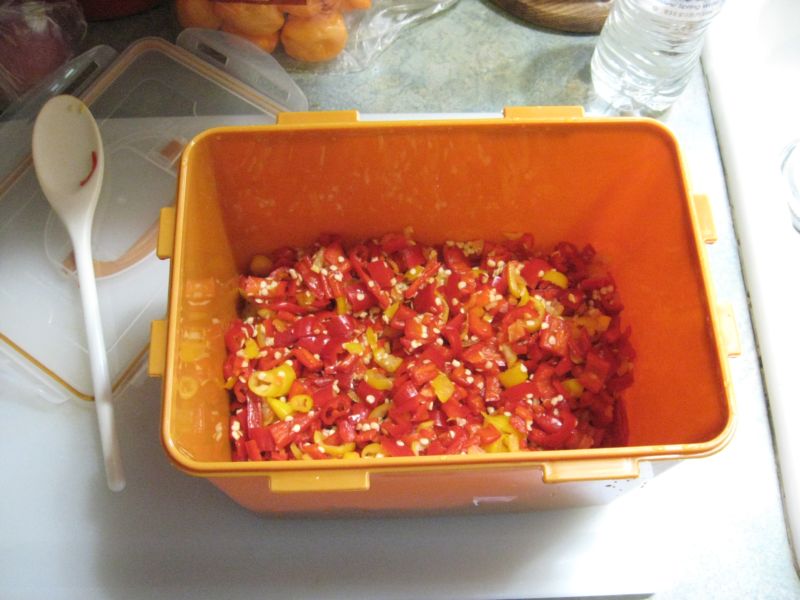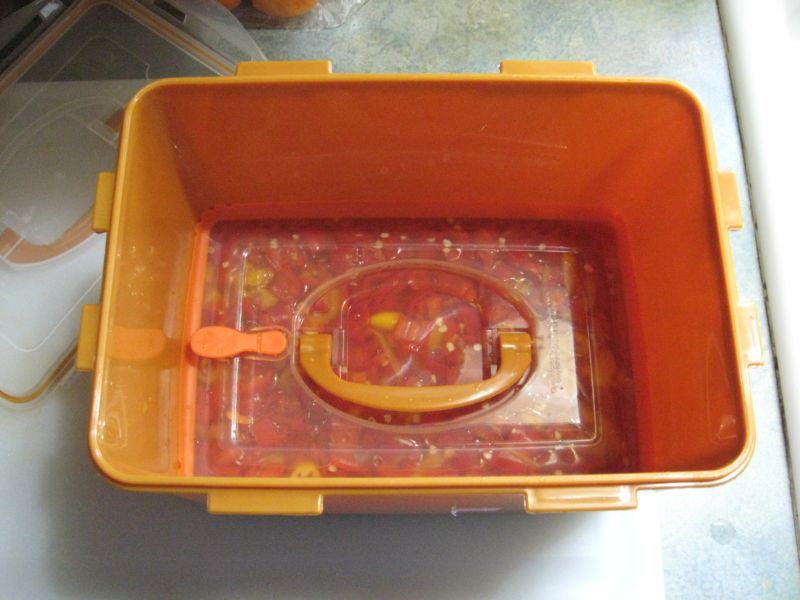PeterPiper
Member
- Joined
- Sep 12, 2017
- Messages
- 7
- Reaction score
- 3
Hey all!
For years now I've been banging my head on the proverbial wall trying to get consistent pickled red/ripe jalapeno peppers that don't go foul (ie taste like beer).
I thought I had it last year after watching this video [ame]https://www.youtube.com/watch?v=amDzKP-PkNg[/ame] where I learned: Do NOT take the lid off and fiddle with the peppers! A CO2 layer is important. So the peppers I made last year were great and I decided to up the production this year, but following the same recipe, I have 30 jars of beer.
I've worn out the internet searching and this site is my last hope... other than getting downright scientific about it by making jars with every possible combination of salt, sugar, vinegar and then struggling to discover any trends.
One observation I made last night was that in June I got a little anxious and decided to make a few jars of pickled peppers using green jalapenos while waiting on the others to ripen and I have 1 jar left. The interesting thing is the green ones are pickled fine and so I'm wondering if the difference between the red and green peppers is the sugar content and it's the excess sugar that is making the beer. (My red jalapenos are REALLY sweet... almost like candy.)
The beer isn't super-terrible and I catch a wee buzz from eating a few peppers , but it's fairly bitter with questionable toxicity. It's a good thing I didn't set out to make beer or I'd have kerosene or something.
, but it's fairly bitter with questionable toxicity. It's a good thing I didn't set out to make beer or I'd have kerosene or something. 
Anyway, if it is an issue of too much sugar, then what can I do to combat the problem? Less peppers per jar and more water? More salt? What about adding a spoon of vinegar to the ferment?
Yup, I'm asking people who make beer how to not make beer
For years now I've been banging my head on the proverbial wall trying to get consistent pickled red/ripe jalapeno peppers that don't go foul (ie taste like beer).
I thought I had it last year after watching this video [ame]https://www.youtube.com/watch?v=amDzKP-PkNg[/ame] where I learned: Do NOT take the lid off and fiddle with the peppers! A CO2 layer is important. So the peppers I made last year were great and I decided to up the production this year, but following the same recipe, I have 30 jars of beer.
I've worn out the internet searching and this site is my last hope... other than getting downright scientific about it by making jars with every possible combination of salt, sugar, vinegar and then struggling to discover any trends.
One observation I made last night was that in June I got a little anxious and decided to make a few jars of pickled peppers using green jalapenos while waiting on the others to ripen and I have 1 jar left. The interesting thing is the green ones are pickled fine and so I'm wondering if the difference between the red and green peppers is the sugar content and it's the excess sugar that is making the beer. (My red jalapenos are REALLY sweet... almost like candy.)
The beer isn't super-terrible and I catch a wee buzz from eating a few peppers
 , but it's fairly bitter with questionable toxicity. It's a good thing I didn't set out to make beer or I'd have kerosene or something.
, but it's fairly bitter with questionable toxicity. It's a good thing I didn't set out to make beer or I'd have kerosene or something. Anyway, if it is an issue of too much sugar, then what can I do to combat the problem? Less peppers per jar and more water? More salt? What about adding a spoon of vinegar to the ferment?
Yup, I'm asking people who make beer how to not make beer





